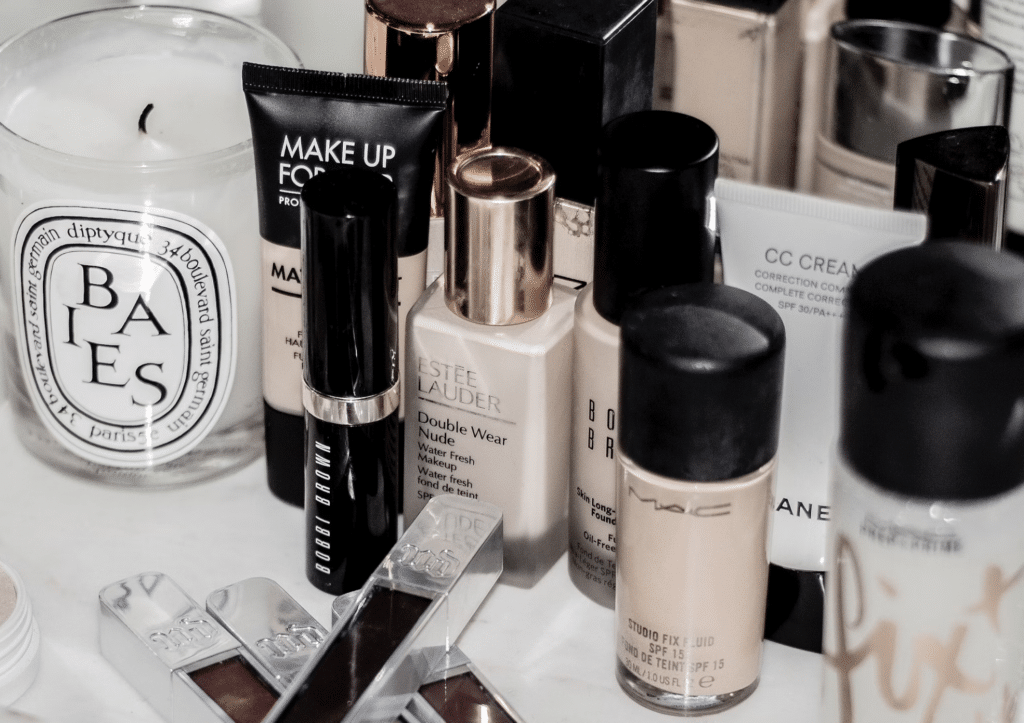In a blow to Estée Lauder, a federal court has allowed a securities fraud lawsuit filed against it to proceed, finding that the shareholder plaintiffs have plausibly alleged that the beauty giant misled investors by “cover[ing] up” its practice of funneling massive product volumes through daigou channels to sustain sales amid global store closures and travel restrictions during the COVID-19 pandemic. In a newly-issued opinion and order, Judge Arun Subramanian of the U.S. District Court for the Southern District of New York denied Estée Lauder’s motion to dismiss, allowing the plaintiffs’ Securities Exchange Act claims against Estée Lauder, its former CEO Fabrizio Freda, and its CFO Tracey Travis to move forward.
The Background in Brief: The proposed class action case got its start in December 2023 when Estée Lauder shareholder Bridgett McAlice filed suit against the New York-based company and its execs on behalf of herself and others who purchased Estée Lauder stock between February 2022 and October 2023 (the “class period”). According to the complaint, Estée Lauder violated federal securities laws by making false and misleading statements about its inventory levels, supply chain management, and financial outlook – and in particular, its reliance on the daigou market in China.
> Daigou refers to the sale of gray market goods by individuals or groups who purchase goods outside of Mainland China for customers in China in order to avoid import duties and taxes.
McAlice and a number of other plaintiffs alleged in an amended complaint that during the class period, Estée Lauder – whose brands include Tom Ford, Too Faced, The Ordinary, La Mer, Balmain Beauty, Bobbi Brown Cosmetics, and MAC, among others – issued optimistic revenue projections and reassured investors about recovery and inventory improvements, particularly in Asia. All the while, Estée Lauder allegedly ramped up its reliance on gray market daigou sales to offset slumping demand in traditional retail channels. However, that practice became unsustainable following a government crackdown on daigou in 2022, and instead of coming clean on the impact of the crackdown, the plaintiffs contend that Estée Lauder attributed resulting sales declines to temporary factors like COVID lockdowns and inventory shifts.
When Estée Lauder admitted in November 2023 that “changes in government and retailer policies related to unstructured market activity” in China were among the primary causes of the decline in sales, its stock price fell by 19 percent, erasing $8.7 billion from its market value.
In a motion to dismiss in May 2024, Estée Lauder, Freda, and Travis sought to escape the securities fraud claims lodged against them on the basis that their statements were either accurate, too vague to be actionable, or protected as forward-looking under the PSLRA’s safe harbor. Beyond that, they argued that the plaintiffs failed to plead that they acted with fraudulent intent.
No Easy Out for Estée Lauder
In his March 31 opinion and order, Judge Subramanian denied Estée Lauder’s motion to dismiss, holding that the plaintiffs had plausibly alleged violations of Sections 10(b) and 20(a) of the Securities Exchange Act. Specifically, the court held that the plaintiffs sufficiently pleaded that Estée Lauder and its senior executives misled investors by making statements that omitted the company’s reliance on gray-market daigou sales in China. The court held that multiple statements during the class period were actionable half-truths or misleading forward-looking statements, and that plaintiffs sufficiently alleged both scienter (i.e., intent or recklessness) and loss causation.
“What matters is that Estée Lauder touted the reasons for its success while leaving out the parts of the truth it found inconvenient,” Judge Subramanian stated, asserting that “the telling of half-truths – that’s what the securities laws don’t tolerate.” Addressing Estée Lauder’s claim that not mentioning daigou was not a material omission and that there was no duty to disclose speculative future risks, the judge stated that “once Estée Lauder chose to speak about the sources of its success, it had a duty ‘to disclose the true (and improper) nature’ of those sources.” In other words, “Once a company speaks on an issue or topic, there is a duty to tell the whole truth.”
The Bigger Picture
The decision highlights the legal exposure global brands may face when off-the-record revenue channels – often tolerated in silence – collide with government crackdowns and investor expectations. For its part, Estée Lauder has publicly disavowed reliance on daigou practices as far back as 2019. At the time, then-CEO Fabrizio Freda emphasized policies limiting per-customer purchases in travel retail locations, ostensibly to avoid propping up the gray market. Internally, the plaintiffs allege, that position shifted as Estée Lauder leaned into daigou to offset pandemic-era sales declines.
The case against Estée Lauder could impact how luxury and beauty companies disclose (or in this case, allegedly fail to disclose) the mechanics behind international growth, especially in volatile markets like China.
Gray market sales have long been an open secret in the luxury and beauty industries, especially in Asian markets. As regulators in countries like China tighten their grip on illicit resale channels, brands may be forced to answer not just to government agencies but also to shareholders about the realities behind efforts to court global growth.
The case is In re The Estee Lauder Co., Inc. Securities Litigation, 1:23-cv-10669 (SDNY).













